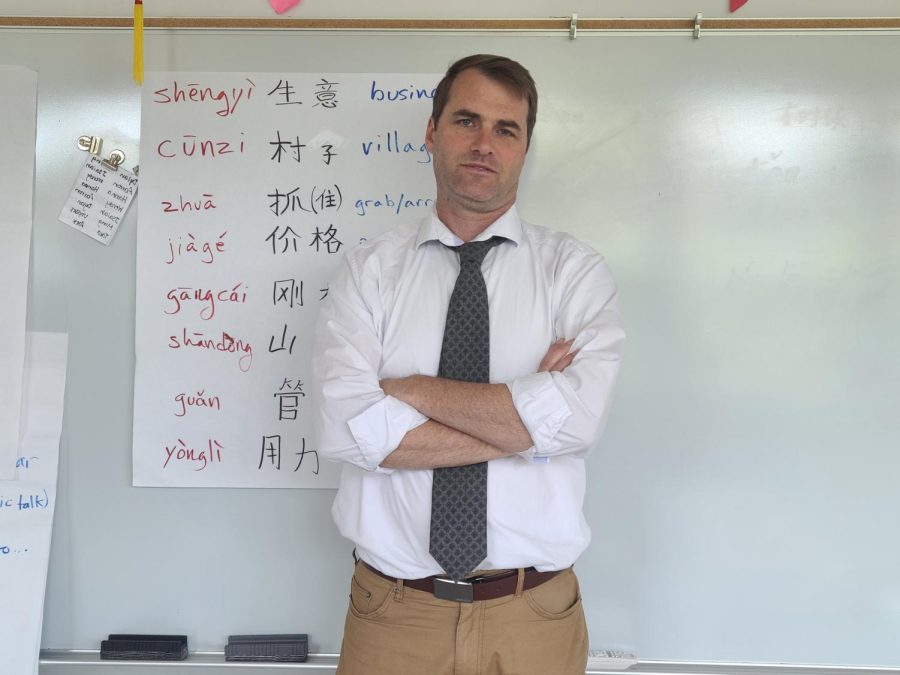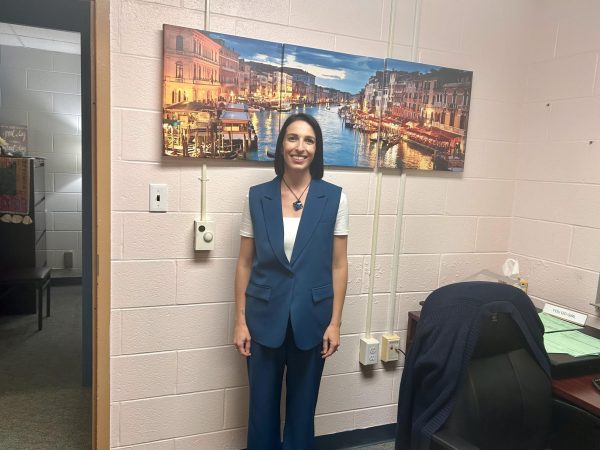‘The first time I went to China, it changed my life’
PV Chinese Teacher Liam O’Neill explains how he fell in love with Chinese culture and became “Ouyang.”
Pascack Valley Chinese Teacher Liam O’Neill, better known as 欧阳 老师 (Ōuyáng lǎoshī), never planned on being a teacher—let alone a Chinese teacher.
“I was growing up in Milwaukee, Wisconsin, and China was nowhere on my radar,” O’Neill said.
“I had no interest in studying China.”
His first glimpse of the Chinese language and culture was through a semester-long study abroad program during his sophomore year at Swarthmore College. According to O’Neill, his possible degree in medicine motivated the trip.
“I thought if I were to be a doctor, that [going to China] would be very useful [to getting] some cursory knowledge of alternative forms of medicine,” O’Neill said.
In preparation for this program, he took a semester of Mandarin Chinese. When he began the class, he was bewildered by the “intricate characters” that the teacher presented to the class, as it was so different from English.
In China, O’Neill took classes in traditional Chinese medicine, language, history, and culture. He described the experience as transformative.
“The first time I went to China, it changed my life,” O’Neill said.
O’Neill not only fell in love with the Chinese language but also with Chinese culture.
“I decided that this is actually something that I really enjoy,” O’Neill said. “And I mean the language partly, but more so the culture. I just fell in love with it. I thought it was fascinating.”
Once O’Neill got back to US soil, he switched his major to Asian Studies, but he was mainly focused on China.
In his new coursework, he continued to study the Chinese language, culture, and history as he did in China.
“I really enjoyed looking at so many different disciplines,” O’Neill said.
Then, O’Neill’s life changed again when he visited China for the second time: during the summer between his junior and senior years. This trip was spent in a Buddhist monastery doing research for a thesis on why the government has allowed Buddhism to come back to China while deciding to persecute the religious movement of Falun Gong, which includes spiritual exercise and meditation.
“I ended up writing my thesis on that question but also a second question that emerged while I was there, and that question was, why do they allow Buddhism, but why do they not allow this spiritual practice called Falun Gong?” O’Neill said.
The persecution of Falun Gong began in July of 1999; at the time O’Neill was still living amongst
the monks on a work visa. He was then asked to leave due to the tense atmosphere surrounding the people of China.
Once he was back at Swarthmore College and graduated, he went straight into human rights activism where he advocated for those that were being persecuted.
To foot the bills during his time as a full-time activist, he applied for a math teacher position at a
school in the inner city of Milwaukee.
“I never was going to be a teacher; I never thought about being a teacher. I became a teacher
because I needed a job at one point… [I] didn’t expect to be a teacher, certainly not a teacher of
Chinese,” O’Neill said.
A few years later, O’Neill moved out to New York to help out with the Human Rights Project and got another math job. Then, there was a position that opened up to teach Chinese and O’Neill grew excited at the opportunity.
“I like teaching. I didn’t get to go to school for it, but I like it, and I love Chinese,” O’Neill said. “It was perfect!”
O’Neill thinks there is something special in Chinese culture and language that causes students’ continual interest. He even created a podcast this year called ZhōuZhōuZhōngwén with his students, centered around “engaging in casual conversation in Zhōng-glish to seamlessly absorb more Mandarin Chinese.”
“When people get a taste of [Chinese culture and language], there’s something so wise and so almost transcendental about Chinese culture that people will feel a click,” O’Neill said.








